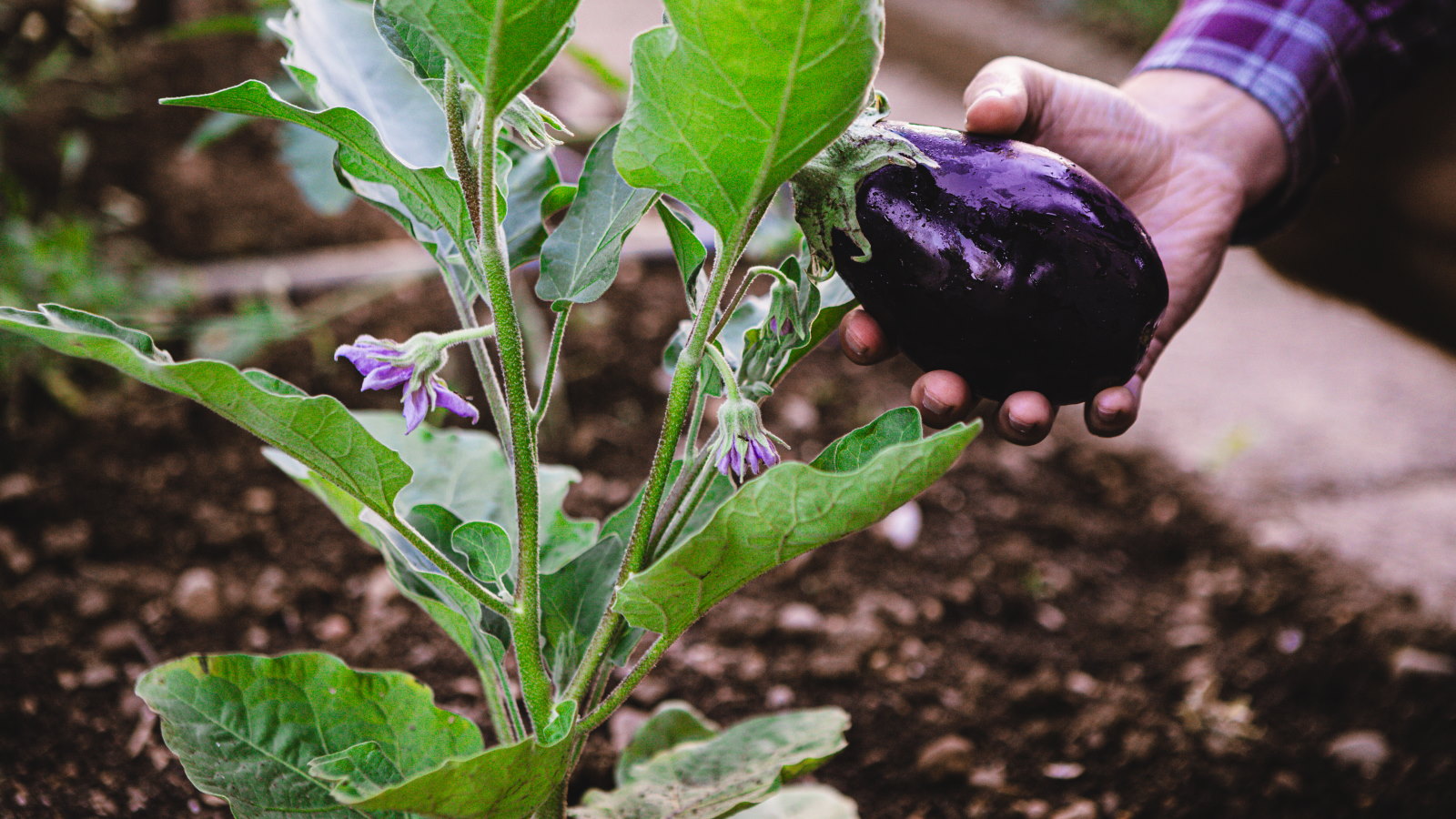
Eggplants can produce up to a dozen fruits per plant, potentially more depending on the type and the growing conditions. However, when growing vegetables, many factors can diminish your harvests. Weather, a lack of nutrients, diseases, or pests can all affect any potential yield.
One way to address issues is through companion planting eggplant with beneficial plants. These advantageous partners can help promote strong, healthy growth and tackle potential pest problems.
This guide explores which plants to choose for companion planting with eggplant and which ones to avoid. We reveal seven of the best companions and explain why they are excellent choices for planting alongside eggplants. Additionally, we discuss the risks associated with planting any unsuitable partners when growing eggplant.
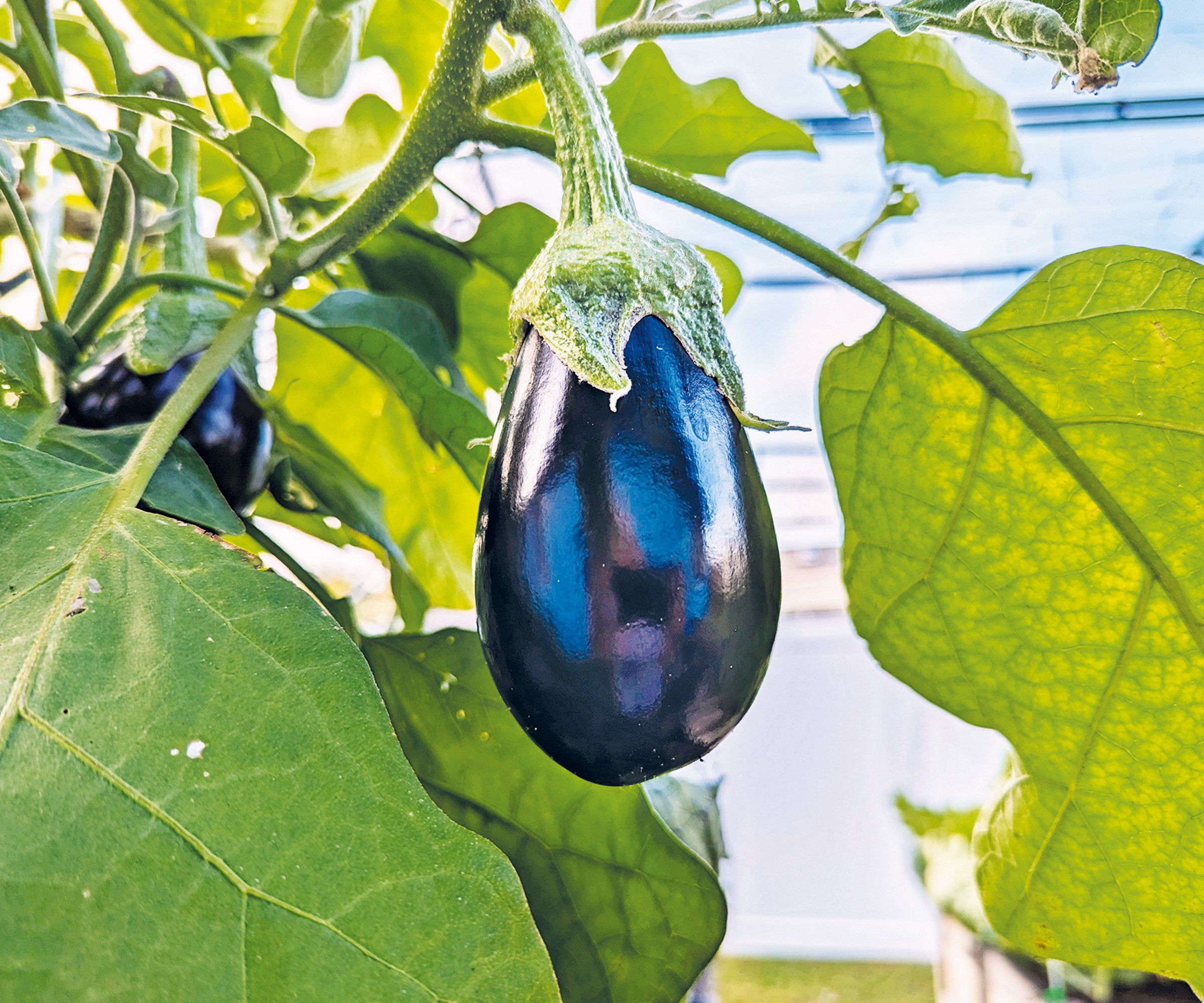
What grows well with eggplant - 7 of the best
To help plan your companion planting to get healthy plants and bumper crops, try combining eggplant with some of these vegetables, herbs, and flowers in your vegetable garden.
Beans
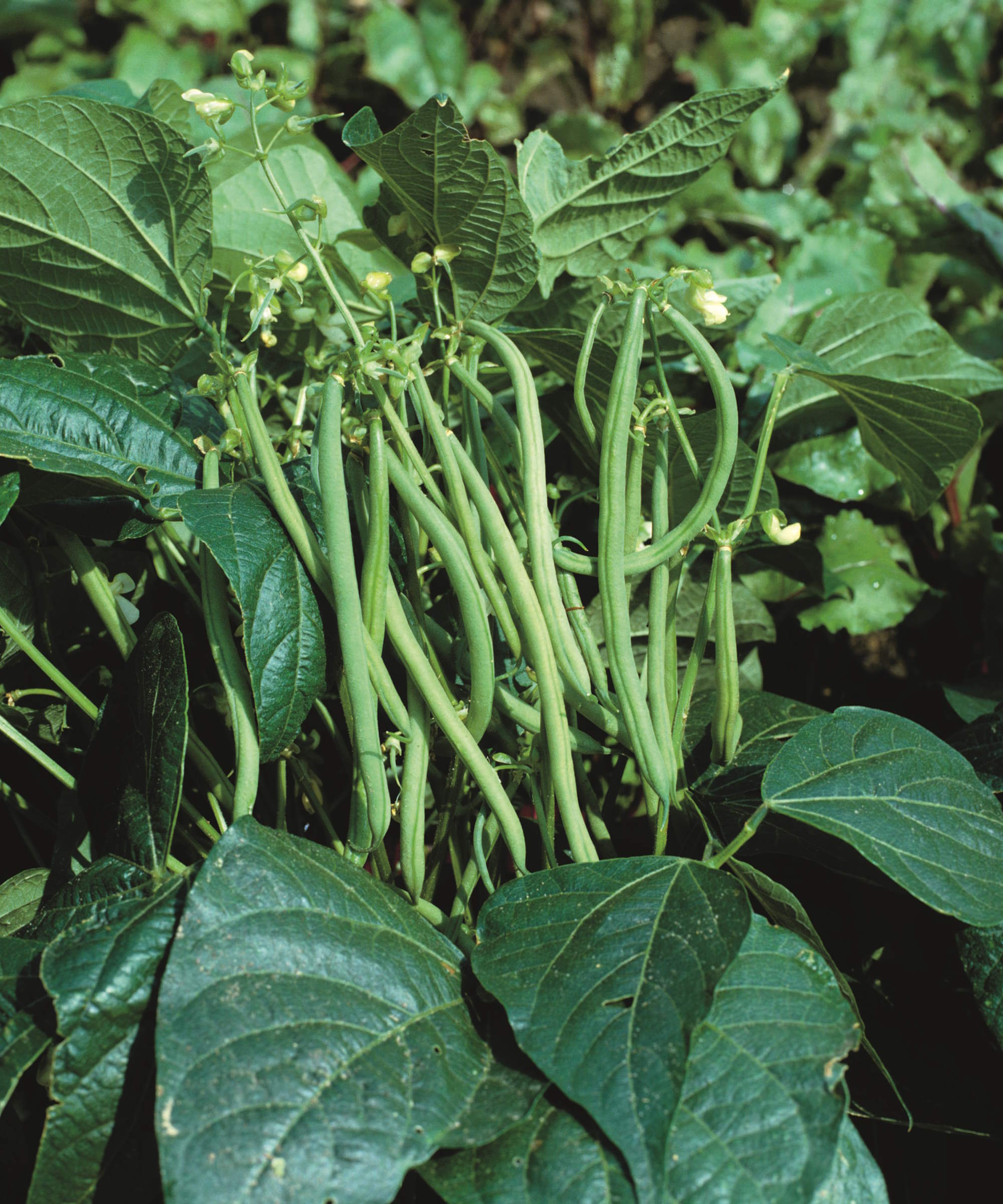
Eggplants are heavy feeders and benefit from being companion planted with legumes, which fix nitrogen in the soil and provide lots of nutrients. Legumes take nitrogen from the air and convert it into a form that plants can use, releasing it into the soil where nearby plants will benefit.
Planting beans, whether pole or bush beans, near eggplants means the crops can take advantage of the replenished nitrogen in the soil. It provides the eggplant with a continued nitrogen supply, ensuring the plants grow healthily and produce an abundance of fruits.
Growing peas as a companion plant for eggplant is a suitable alternative to beans, as it provides the same nitrogen-fixing benefits.
See the range of bean seeds and plants at Amazon
See the range of bean seeds and plants at Walmart
See the range of bean seeds and plants at Burpee
See the range of bean seeds and plants at True Leaf Market
Dill
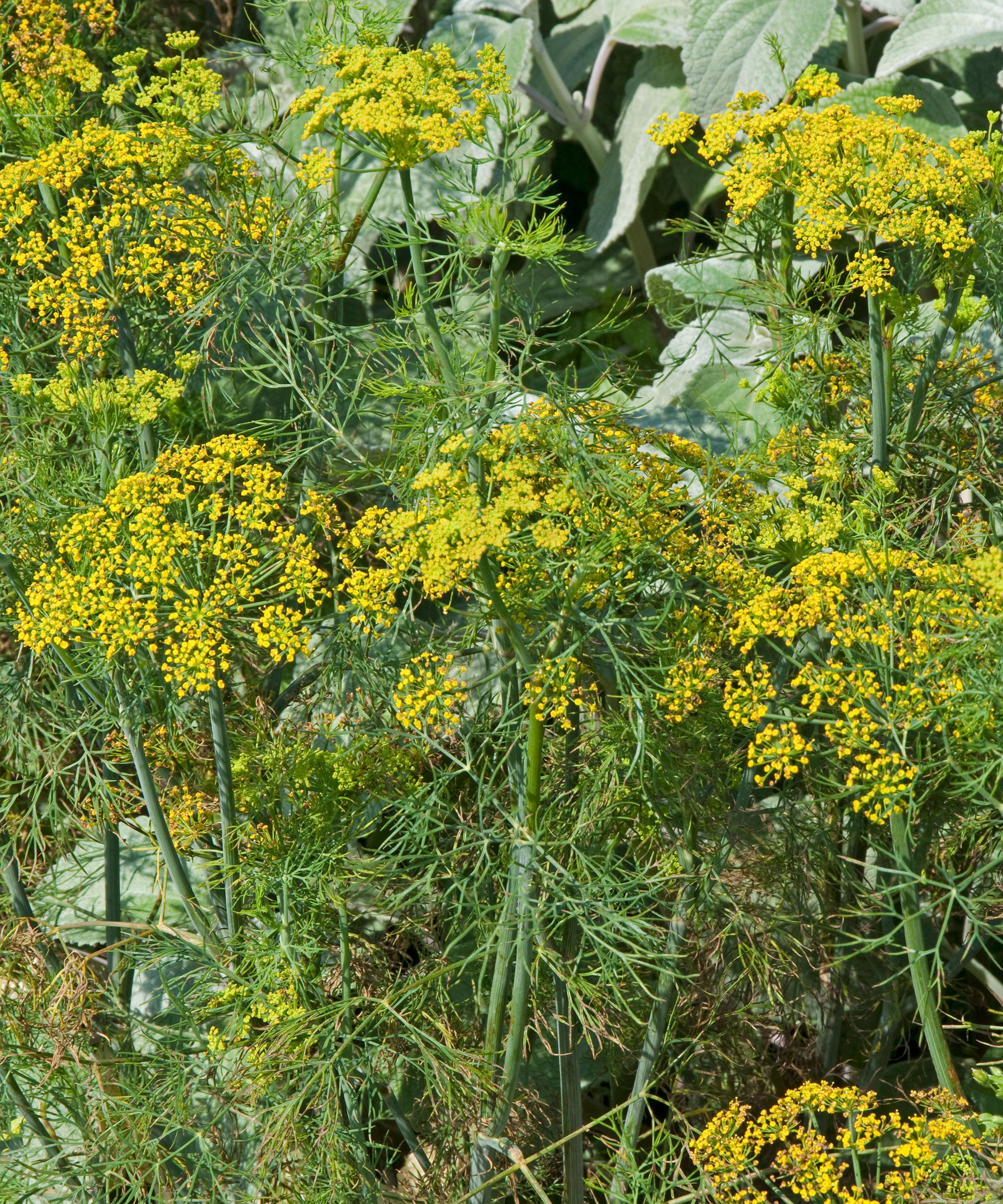
Growing dill near eggplant can help combat a serious pest of eggplants, in armyworms. These nasty pests eat the leaves, flowers, and fruits of eggplants, while they also cause trouble when growing tomatoes and beans.
The scent of dill attracts parasitic wasps and other beneficial insects, including ladybugs and lacewings, and they will eat armyworms and several other troublesome pests.
Companion planting eggplant with dill will help guarantee you a lot of eggplant to pick throughout the season.
Marigolds
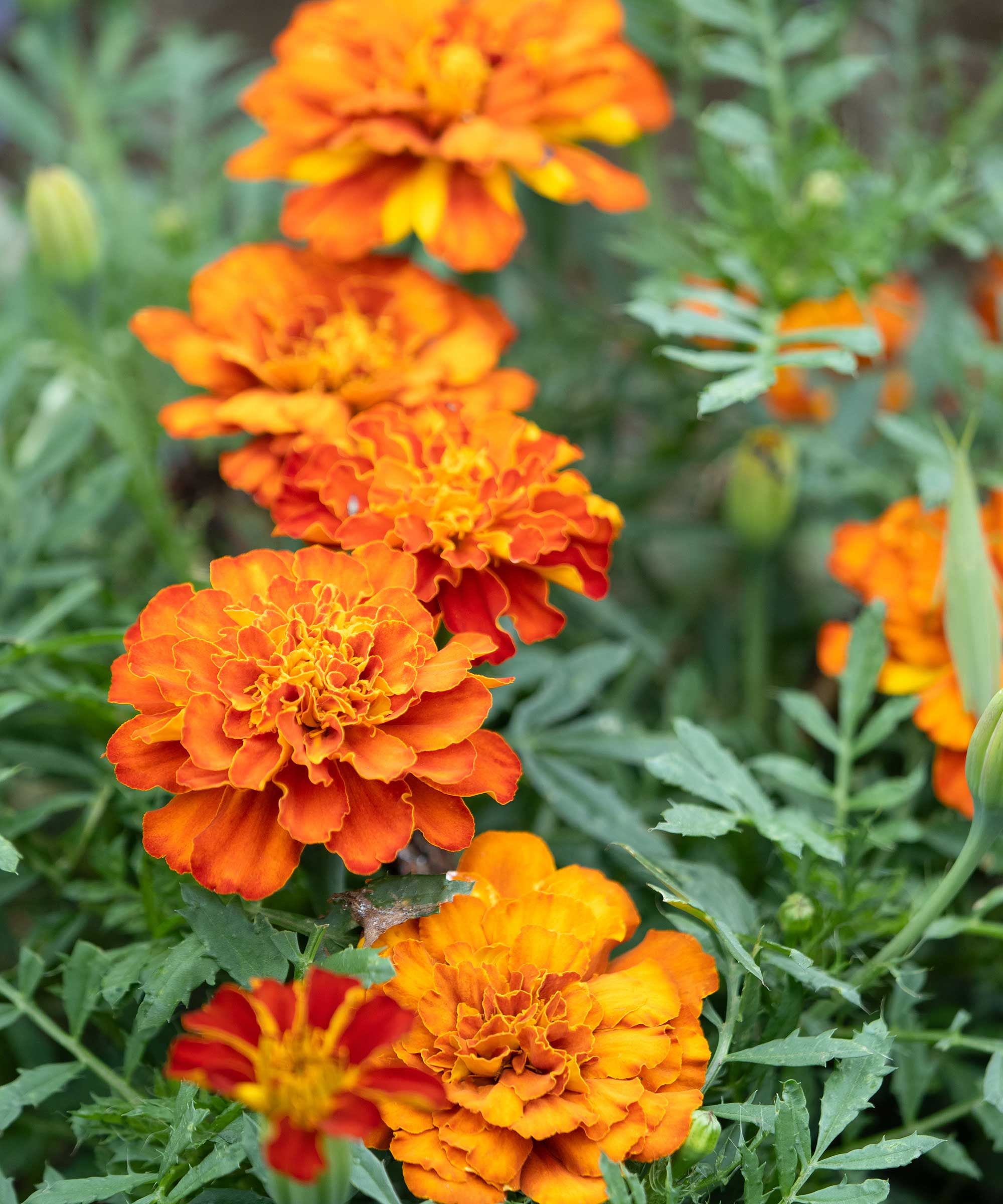
There is one fundamental reason to plant marigolds in a vegetable garden. That is the fact that marigolds keep bugs away, including many pests that can otherwise attack your eggplants.
Growing marigolds deters aphids, whiteflies, wasps, and mosquitoes, all thanks to the plant’s strong smell. In addition, chemicals released from the plant’s roots can combat root-knot nematodes in the soil, and the bright blooms of marigolds attract beneficial insects that will eat many pests.
French marigolds are the most pungent and best for companion planting. The bright and cheery flowers can be planted in the soil around eggplants, or you can grow marigolds in pots and place them near your crops.
Onions
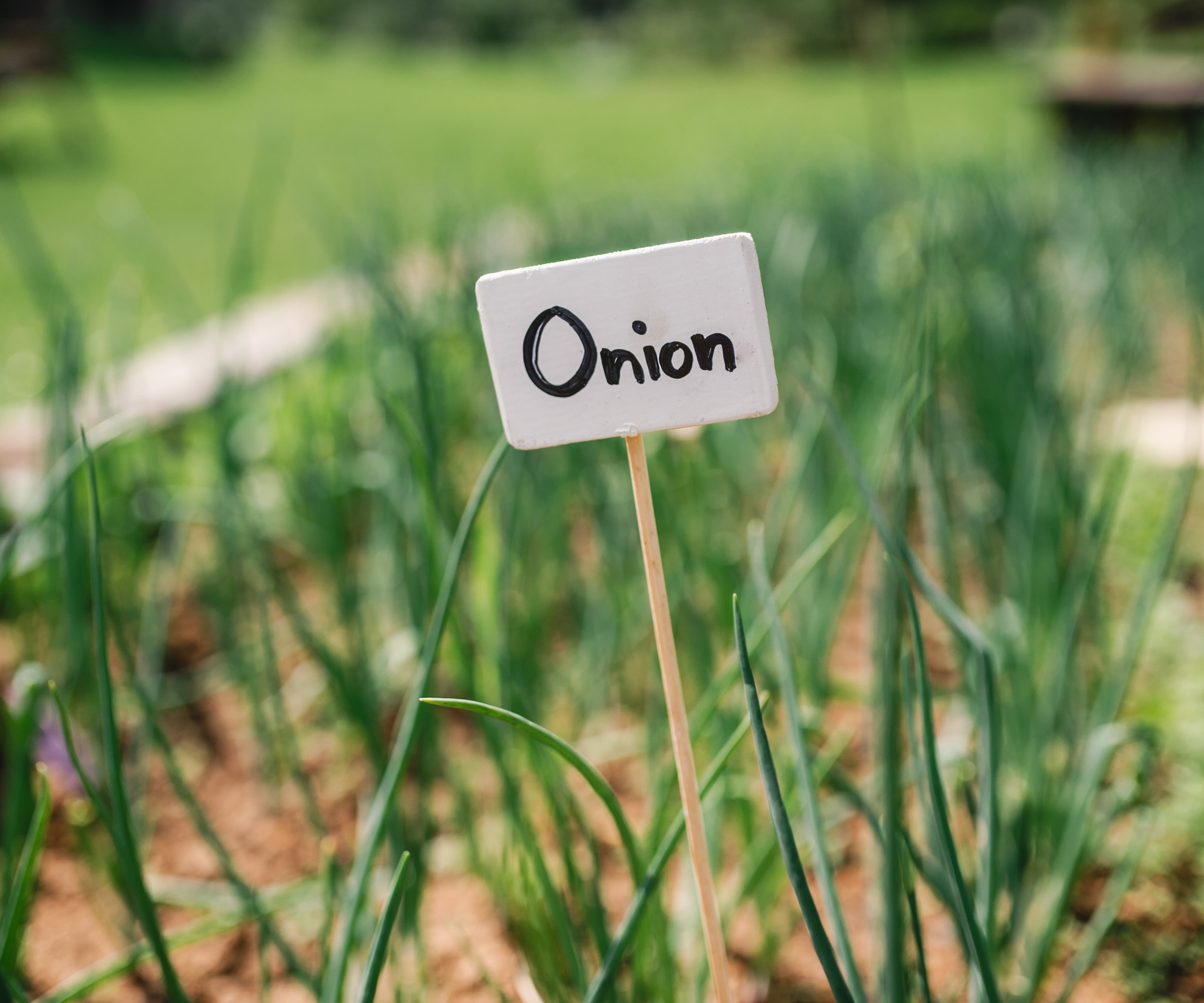
Onions and other alliums are great for companion planting eggplants, as their pungent aroma repels lots of pests. The strong smell from onion companion planting combats aphids, Japanese beetles, caterpillars, cutworms, and more, helping to keep your eggplants healthy and productive.
As onions are shallow-rooting crops, they will also not compete with eggplants for the same nutrients and water in the soil. It means both crops can happily develop pest-free and produce a good harvest.
An alternative to onions is growing garlic, leeks, green onions, or chives. Any of these aliums will produce a strong scent to repel pests from troubling eggplants.
See the selection of onion sets and seeds at Amazon
See the selection of onion sets and seeds at Walmart
See the selection of onion sets and seeds at Burpee
Oregano
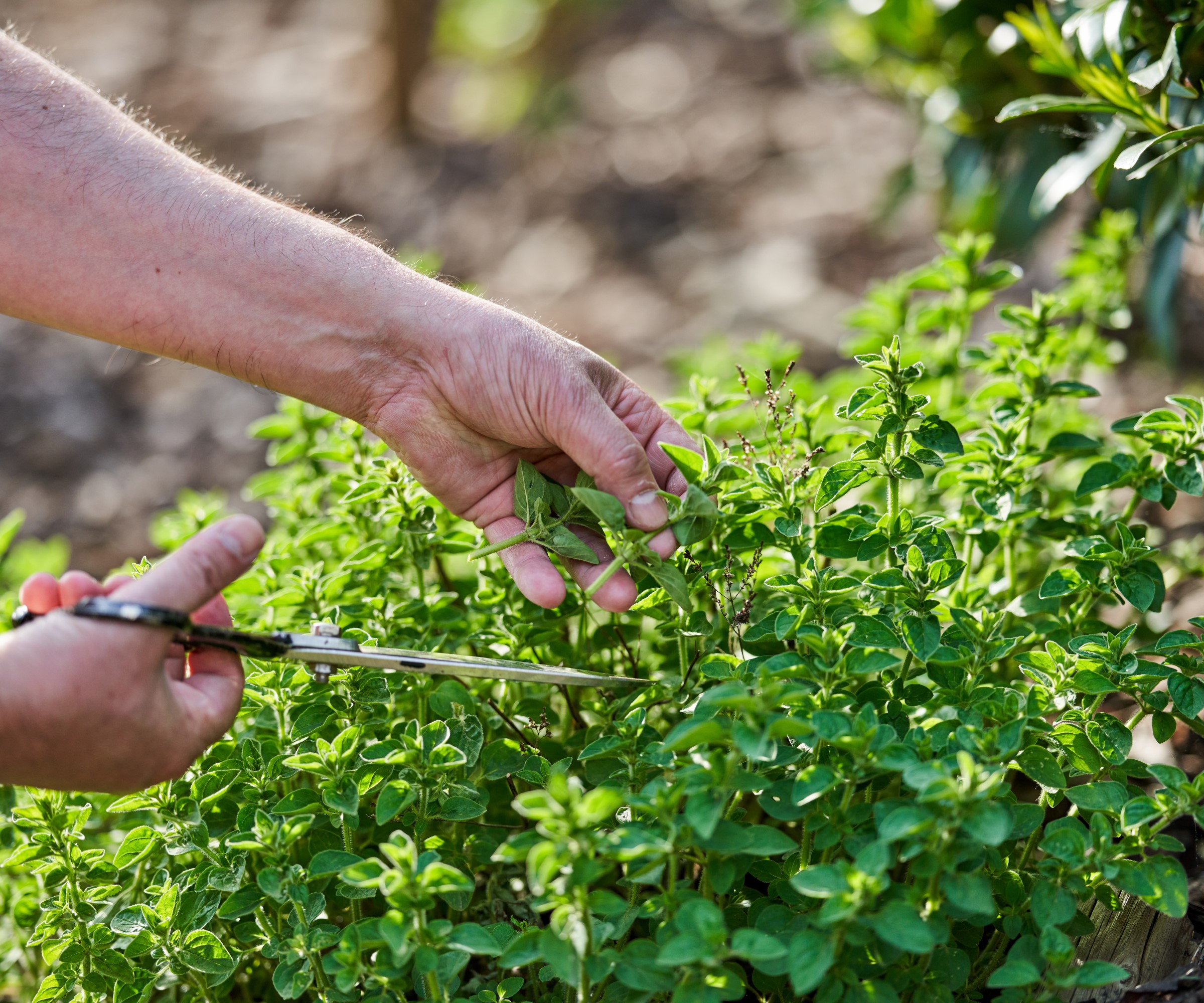
Oregano is a great aromatic herb that offers a double-whammy of benefits for companion planting eggplant.
Firstly, growing oregano attracts many beneficial insects and pollinators. These helpful visitors, including bees, will pollinate blooms so you get more eggplant to harvest, plus they will attract ladybugs and other insects that can nibble on pests.
On top of attracting beneficial insects, the strong-smelling leaves of oregano repel many unwanted pests, including aphids, spider mites, cabbage worms, and cucumber beetles.
Overall, planting oregano near eggplants can mean healthier plants and improved yields.
Potatoes
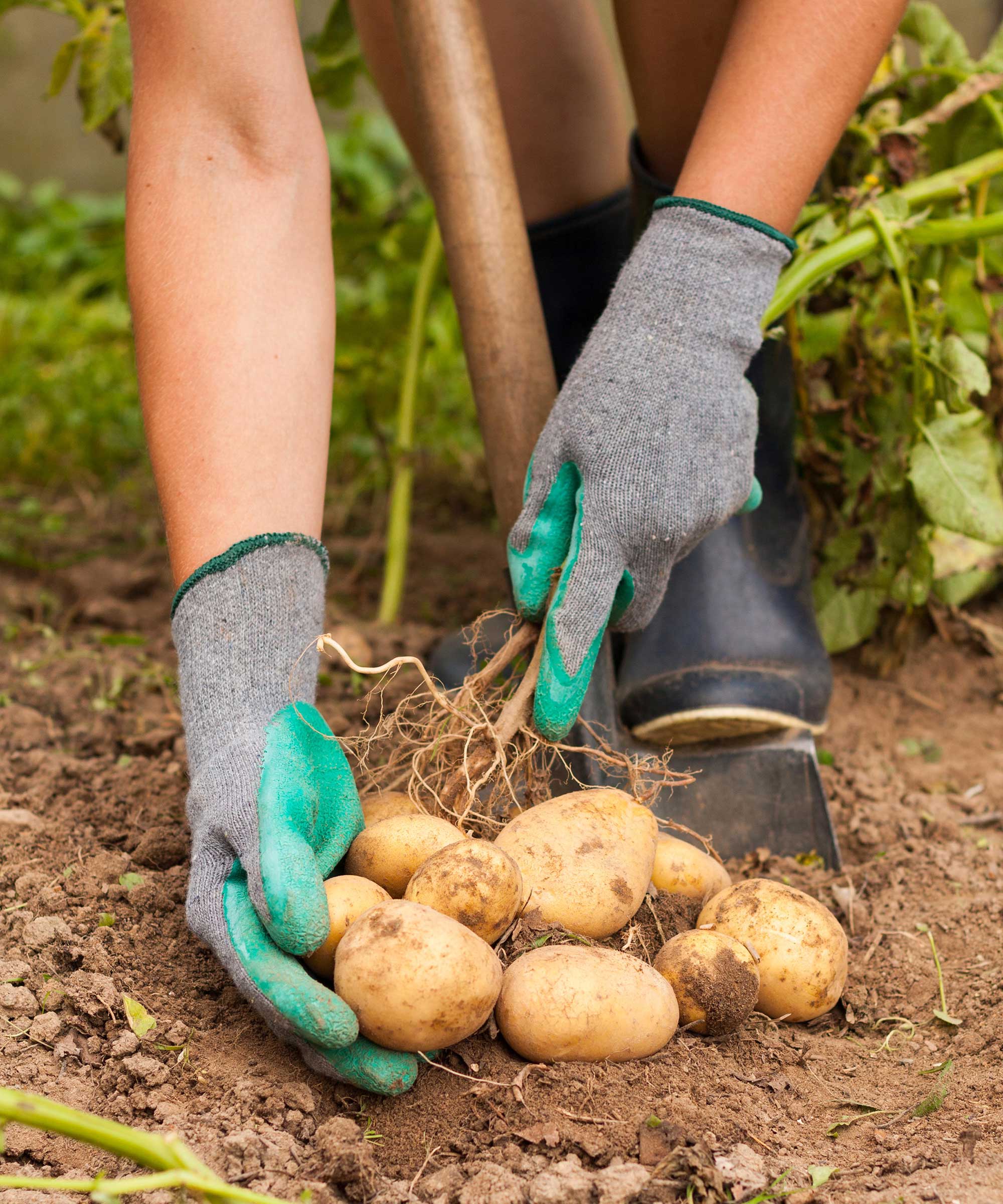
You may not think of growing potatoes and eggplants together, but it can work well. It works because potatoes and eggplants are both members of the nightshade family that require similar growing conditions to thrive.
When you plant potatoes or eggplants, they like well-draining and fertile soil, where they can get at least six hours of sunlight daily. Their similar growing preferences make eggplant a good partner as a potato companion plant.
Another nightshade crop that can work well with eggplant is peppers. Whether you grow bell peppers or chili peppers, they have the same requirements as eggplant, so they work well side-by-side. Just be sure to rotate nightshade plants around the kitchen garden each year to avoid a build-up of diseases in the soil.
See the range of seed potatoes at Amazon
See the range of seed potatoes at Walmart
See the range of seed potatoes at Burpee
Spinach
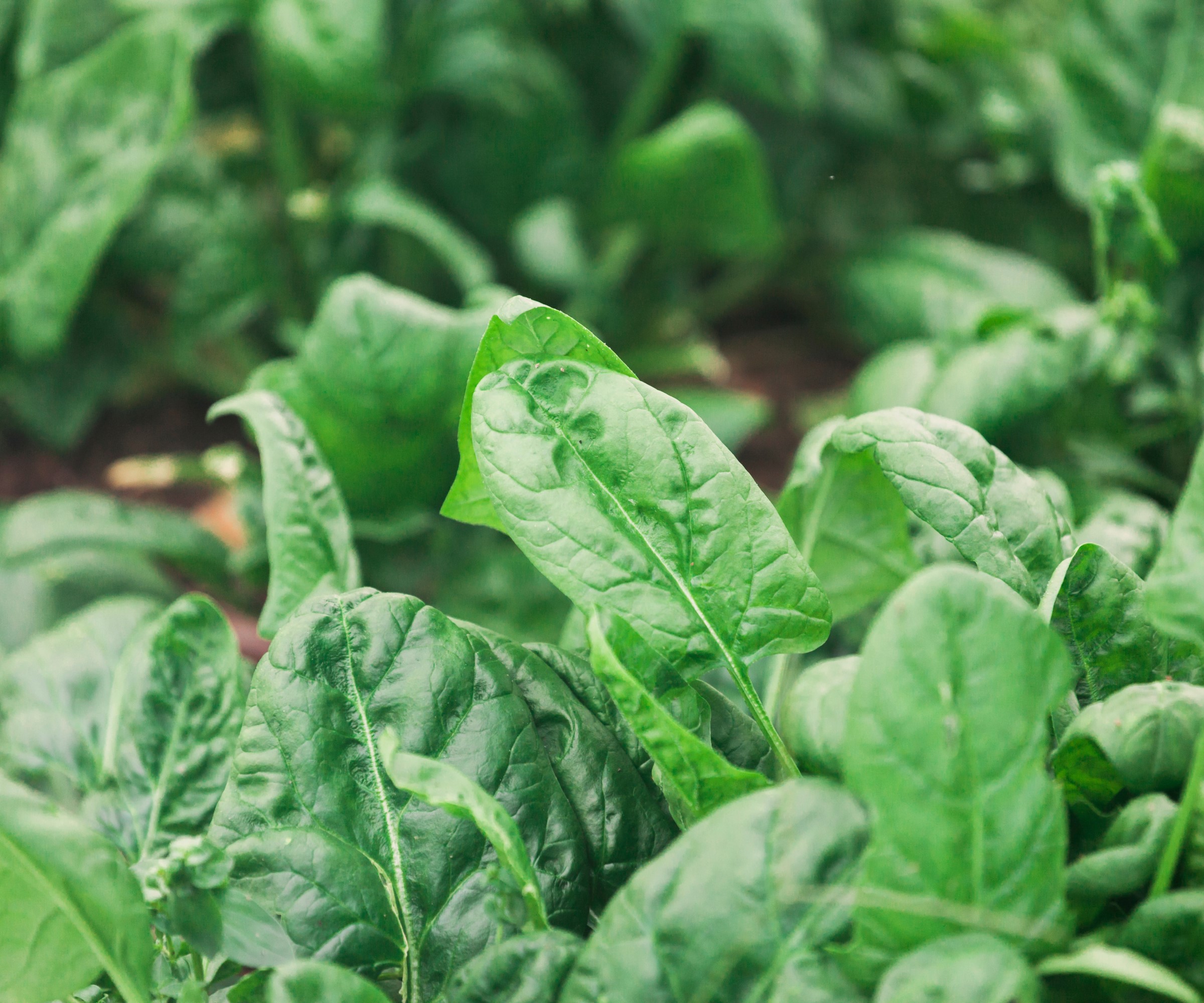
Eggplant can be a useful spinach companion plant as it can extend any potential spinach harvest. The tall-growing eggplants provide shade for spinach during the summer, helping to prevent the plant from bolting and extending any potential harvesting period.
Also, both crops like fertile and well-draining soil types and growing spinach densely can retain moisture in the soil and suppress weeds, to the advantage of the eggplant. As eggplants have a deeper root system than spinach, the two can also happily grow together without competing in the same soil zone for water and nutrients.
See the range of spinach seeds and plants at Amazon
See the range of spinach seeds and plants at Walmart
See the range of spinach seeds and plants at Burpee
See the range of spinach seeds and plants at True Leaf Market
What not to plant with eggplant
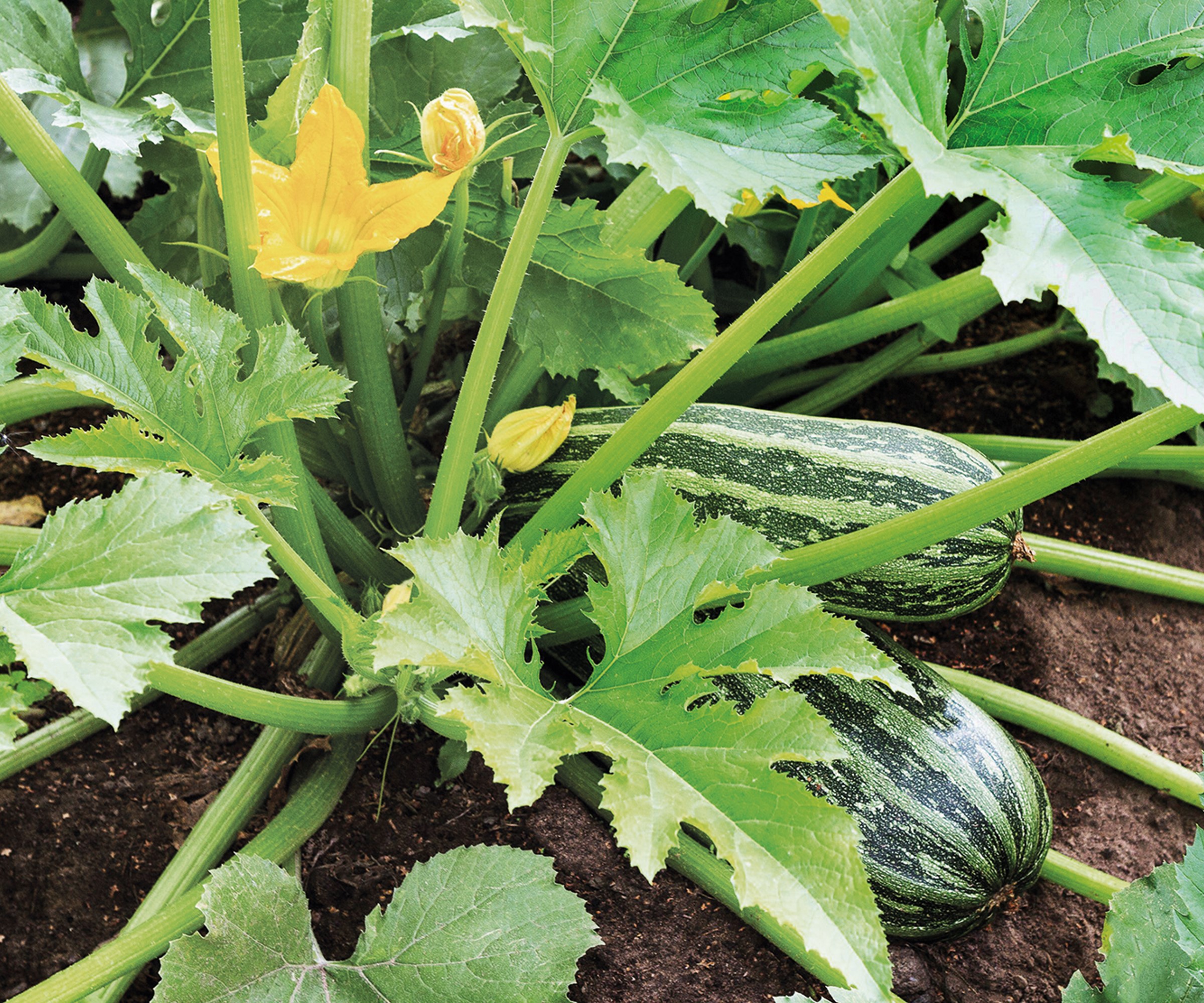
With the good, must come the bad. Not all crops mix well with eggplants, some would be a companion planting mistake to pair them together.
It is not advisable to plant eggplants with other heavy feeders. The likes of melons, corn, pumpkin, squash, cucumbers, and zucchini all need lots of nutrients and compete with eggplant for them. These crops can rob nutrients from eggplants and impact their growth.
Some plants can actively impair the growth of eggplants. Fennel is an allelopathic plant that can stunt the growth of others around it, including eggplant, and geraniums are renowned for stunting the development of eggplants.
It would be an eggplant-growing mistake to have fennel or geraniums planted near the plants.
FAQs
Can eggplant and cucumbers be planted together?
Eggplant is not ideal for cucumber companion planting as both crops are heavy feeders. Planting them close together can result in them competing for nutrients and potentially both plants will suffer.
Can eggplant and tomatoes be planted together?
As well as eggplant and tomatoes both being heavy feeders, the crops are also not ideal for tomato companion planting because they are susceptible to the same pests and diseases.
While companion planting eggplant is recommended to help boost yield and plant health, feeding plants should also never be underestimated. This is because eggplant needs lots of nutrients to produce fruits and benefit from feeding throughout the growing season.
Fertilize eggplants with balanced slow-release feed when transplanting seedlings, and then use a liquid feed high in phosphorus and potassium once the plant starts to set fruit. A feed like a liquid tomato fertilizer can be applied when you water plants every 2-4 weeks to encourage fruits to develop and ripen.
Shop for eggplant companion planting
This variety of dill grows to around three feet and has strongly aromatic foliage, stems, and heads.







